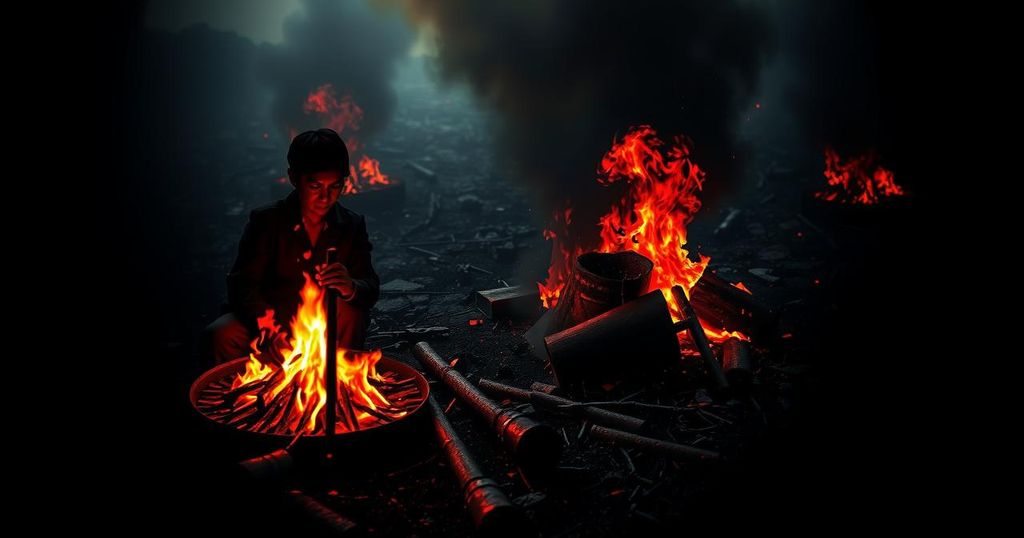Research Uncovers Tolerance of Violence by Dutch Soldiers in Indonesian Independence War

Research indicates that during Indonesia’s fight for independence (1945-1949), Dutch soldiers committed widespread violence, including extrajudicial killings and torture, tolerated by the Dutch government. The study critiques the systemic impunity and highlights the enduring consequences of colonial actions on Indonesian society.
A recent comprehensive study conducted by The Royal Netherlands Institute of Southeast Asian and Caribbean Studies (KITLV), the Netherlands Institute of Military History (NIMH), and the Institute of War, Holocaust, and Genocide (NIOD) has brought to light the extensive violence perpetrated by Dutch soldiers during Indonesia’s struggle for independence from 1945 to 1949. The researchers assert that acts of violence, including extrajudicial executions, murder, rape, and torture, were not only prevalent but also systematically tolerated by the Dutch government, which opted against thorough investigations into these violations. This lack of accountability has further highlighted the overarching themes of colonization, racism, and exploitation that characterized this period in Indonesian history. During a discussion, the researchers emphasized the deliberate nature of the violence employed by Dutch forces, asserting that it was widespread across the archipelago. They criticized the impunity that the perpetrators enjoyed, pointing to the historical context of these actions as reflective of deep-rooted colonial attitudes. Jeffry Pondaag, Chairman of the Committee of Dutch Honorary Debts (KUKB), commented that such revelations are not surprising, considering the long-standing historical perceptions regarding the Netherlands’ role in Indonesia’s past. He pointedly noted that the Netherlands had previously conducted investigations into these matters, reflecting a recognition of its historical responsibilities.
The backdrop of these findings traces back to Indonesia’s declaration of independence from the Dutch Empire on August 17, 1945. Despite this declaration, the Netherlands resisted acknowledging Indonesia as an independent nation and instead deployed military forces to suppress this newly declared autonomy. The conflict marked a tumultuous period characterized by severe confrontations and humanitarian crises, leading to documented war crimes, including massacres of civilians by Dutch troops. It was not until December 27, 1949, that the Netherlands formally recognized Indonesia’s sovereignty following prolonged peace negotiations.
In summary, the recent study illuminates the troubling legacy of Dutch colonialism in Indonesia, particularly the violence that Dutch soldiers inflicted upon the Indonesian populace during the independence struggle. The lack of sufficient governmental oversight and accountability for these actions underscores the complexities of colonial histories and their lingering impacts. Moreover, the perspectives expressed by figures such as Jeffry Pondaag suggest a call for further acknowledgment and reconciliation regarding these historical injustices.
Original Source: www.aa.com.tr








